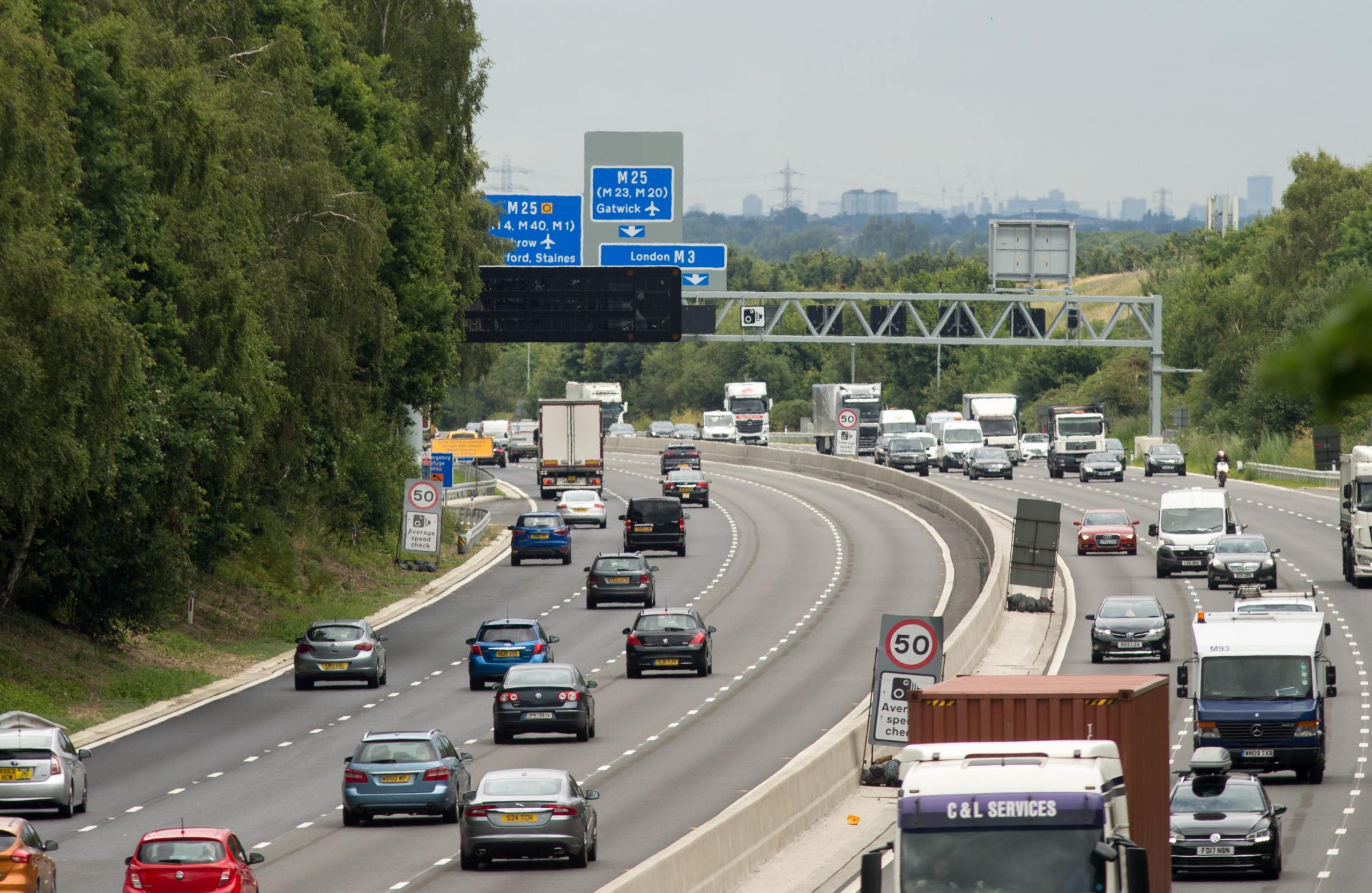Nearly seven in 10 drivers want the hard shoulder reinstated on smart motorways despite Government objections over disruption and costs, new research suggests.
Some 69% of respondents to a poll commissioned by the RAC said they believe the emergency lane should be restored on all-lane running (ALR) versions of smart motorways.
The survey was carried out hours after Downing Street insisted on Monday that such a move would be “too disruptive” and cost a “significant” amount of money.
It was announced on Sunday that the building of new smart motorways has been cancelled amid safety fears.
RAC road safety spokesman Simon Williams said: “We’re pleased the Government reached the same conclusion that many drivers already have by cancelling future smart motorway schemes which would have seen dozens more miles of hard shoulder disappearing forever.
“But, as things stand, by the end of this year there will still be 250 miles of motorway in England without hard shoulders.
“Installing additional refuge areas and radar technology to help spot stricken vehicles is welcome and necessary, but for most drivers this doesn’t go far enough.
“Many felt they were dangerous from the outset and now it’s clear the Government has totally lost faith in these types of road as well.
“Today, it remains the case that anyone unlucky enough to break down who can’t get to an emergency refuge area remains incredibly vulnerable where the hard shoulder has been taken out.
“We continue to believe that reinstating the hard shoulder on all stretches of road where they’ve been converted into a permanent fourth lane is the right thing to do.”
Labour’s shadow transport secretary, Louise Haigh, said: “Labour have long demanded action on smart motorways and it’s a tragedy that so many lives have been lost waiting for ministers to act.
“We know smart motorways, coupled with inadequate safety systems, are not fit for purpose and are putting lives at risk.
“That’s why Conservative ministers should reinstate the hard shoulder on existing smart motorways and carry out remedial and safety work while a comprehensive review of the inadequate safety systems and evidence takes place.”
Smart motorways involve various methods to manage the flow of traffic, such as converting the hard shoulder into a live running lane, and variable speed limits.
ALR smart motorways boost capacity at a lower cost than widening roads.
There have been long-standing safety fears following fatal incidents in which vehicles stopped in live lanes were hit from behind, but National Highways insists the roads are safer than conventional motorways.
– The RAC commissioned research company Find Out Now to carry out the survey of 1,843 UK drivers on Monday.

